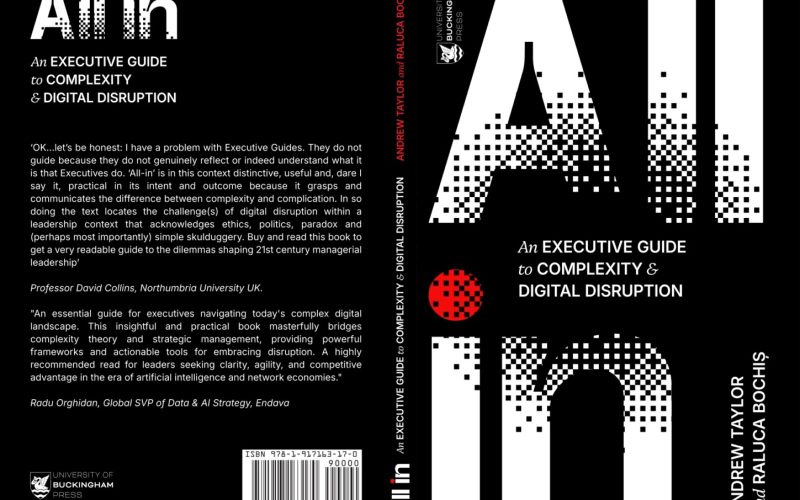Ever wondered why technology firms seem to have valuations apparently unrelated to their revenues? It’s because of a process called groove-in. In order for us to be able to collaborate across digital networks we need to share digital standards.
Whoever controls these standards effectively controls the market; this process is called technological groove-in and it is the basis of the success of Microsoft Office.
Software programs allow users to manipulate existing grooves or extract them from audio to apply to MIDI clips, controlling note placement and timing.
Having learnt how to use a new technology, humans are reluctant to learn alternative tools to achieve similar outcomes and this process of psychological lock we can call psychological groove-in and is the reason Facebook succeeded and MySpace and Friends Reuinited failed.
Do you really want friends on different network platforms that operate differently, or would it be better if they were all on the same platform?
These are some of the questions explored in a new book, ‘Executive Guide to Complexity and Digital Disruption’, launched on Sept. 9 and coming to Romanian premier bookstore, Carturesti, later this year.
The 248-page book is written by Andrew Taylor and Raluca Bochis and published by the London-based University of Buckingham Press.
The book explains that wherever digital technology disrupts, the effect of groove-in is to move market equilibrium towards monopolistic competition, i.e where there are few competitors.
In a written interview, Dr. Taylor told Universul.net that this model goes against the rules of traditional economics.
It is “hard to think of any markets where technology has disrupted that remain with more than 1-3 major players.This contradicts traditional economics where as new markets take off competitors, attracted by good returns enter the market and expand competition,” he said.
“The effect of this is to undermine one of the most fundamental laws of economics – the law of diminishing returns. Investors that think groove-in is taking place pile into companies and this drives the otherwise strange valuations that we see. When investors anticipate a company’s growth, they heavily invest in it, which explains the unusually high valuations we often observe.”
“He added that in order to “compete in the digital economy (it) is not about managing order or predictability, but about probing for emergent patterns of groove-in.”
He added that the mistake user are making with AI, for example “is that in framing it primarily as a tool of efficiency we are making the same mistakes we made when the web first emerged. Back in the 1990’s consultants were making fortunes advising clients how to use tech to re-engineer their existing processes, whilst the likes of Amazon were developing whole new business models.”
The real opportunities with AI are to be found in how it can reshape our whole business models or as Michael Hammer ‘the father of reengineering’ famously said in the Harvard Business Review, in 1990, “don’t reengineer, obliterate.”
Another issue is China’s emergence as a digital superpower.
“(It) is concerning not just because America dislikes having serious competitors that can build devices cheaper. It is (also worrying) because the lock-in that network effects provide, flowing from groove-in, are not only available to market competitors. Given the monopolistic nature of power that flows from digital groove-in, control over digital standards and infrastructure effectively enables the controllers to define the nature of global trade.”
As Jonathan E. Hillman, an expert in economic and security issues and author of The Digital Silk Road noted in 2021. “Understanding this, Chinese officials have long said that third-rate countries build things, second-rate countries design things, and first-rate countries set standards.”
“The emergence of the ability to hack not just businesses, but also elections and the blatantly transactional shift of American policy, under the Trump administration, has completely changed how everyone is thinking about technology, Taylor added.
The power of groove-in has become clear, if not widely understood, by everyone. Dependence upon standards and algorithms mostly defined in a capricious US frightens Europeans only slightly less than the rapidly emerging Chinese alternative.
But the book is not just gloom.
Even if ‘It is absolutely true that AI will render many jobs redundant, but just like the web before, it will create many new roles also. Although many fear AI, it is not AI itself that is causing social dislocation, it is the broader convergence of technology and globalization that is leaving many people behind,” taylor explained.
“Technology is outsourcing jobs to cheaper locations and e-commerce is closing shops, leaving those whose identity is rooted in a sense of place adrift. “
“Unfortunately, the economic and political elites in most western countries are now entirely dominated by people for whom technology has turned the world into a giant shopping mall of opportunity and ideas,” he said.
“Those left behind rightly feel unheard and are turning to the extremes in the desperate hope that the louder and crazier the voices they vote for the more likely they are to be heard. For the global village, as currently constructed, offers them nothing.”
However, the book offers positive examples of an alternative model of development, based partly on research in Romania where the authors are based. It aims to show readers how to successfully participate in complex digital markets and provides models and tools to connect the local to the global, to everyone’s advantage.
About the authors:
Taylor has a PhD from the University of Cardiff and has edited, co-authored or single authored six books. For the past 25 years he has managed the training & consulting firm Connect CEE, specialized in teams, leadership and disruptive change. He also leads Transilvania Executive Education (TEE), delivering an executive MBA in Cluj, and teaches both for TEE and other British universities around the world.
Articolul EXCLUSIVE | Technology has turned world ‘into a giant shopping mall’ for the elites; while the rest turn to extremes, new book says apare prima dată în Universul.net.
